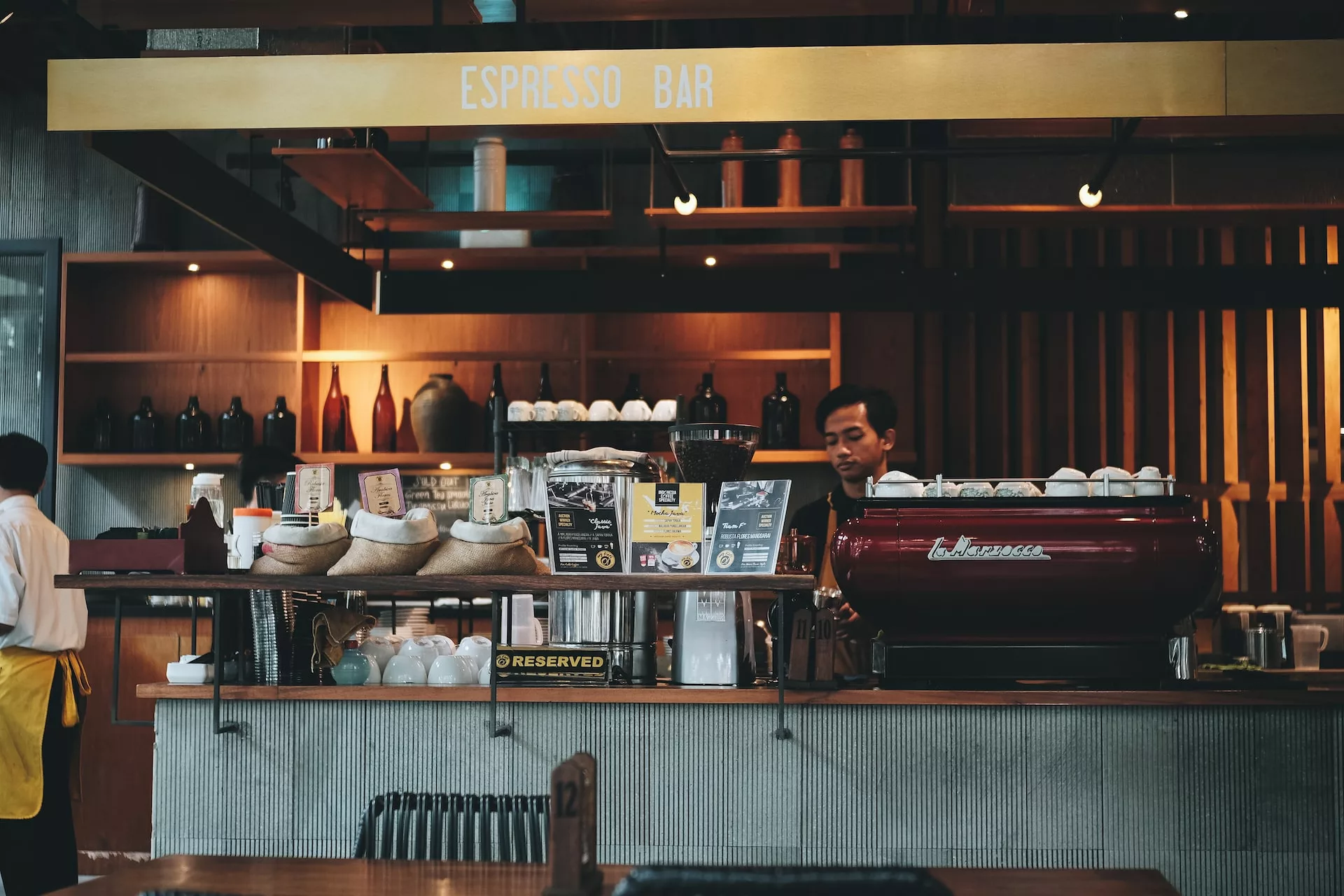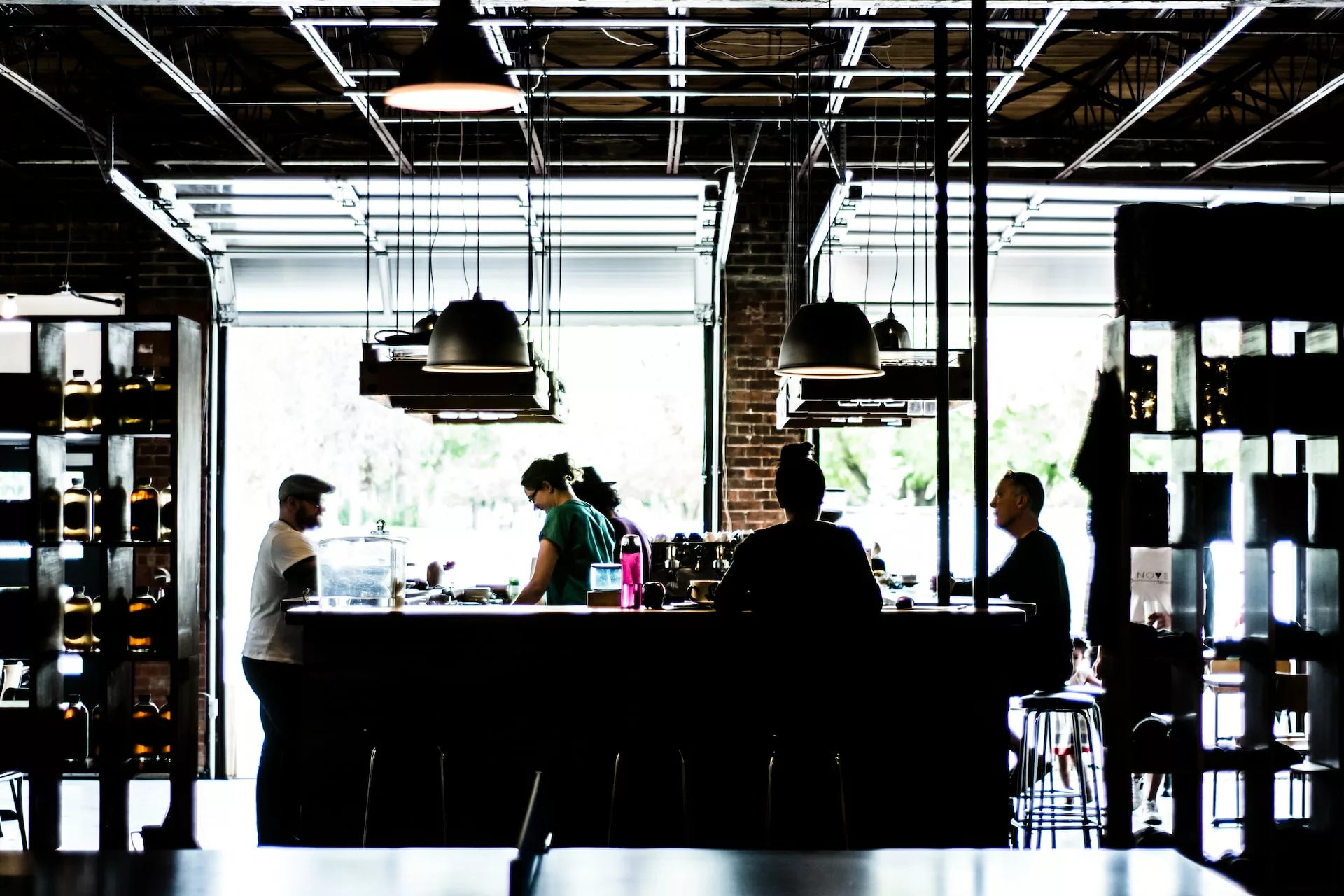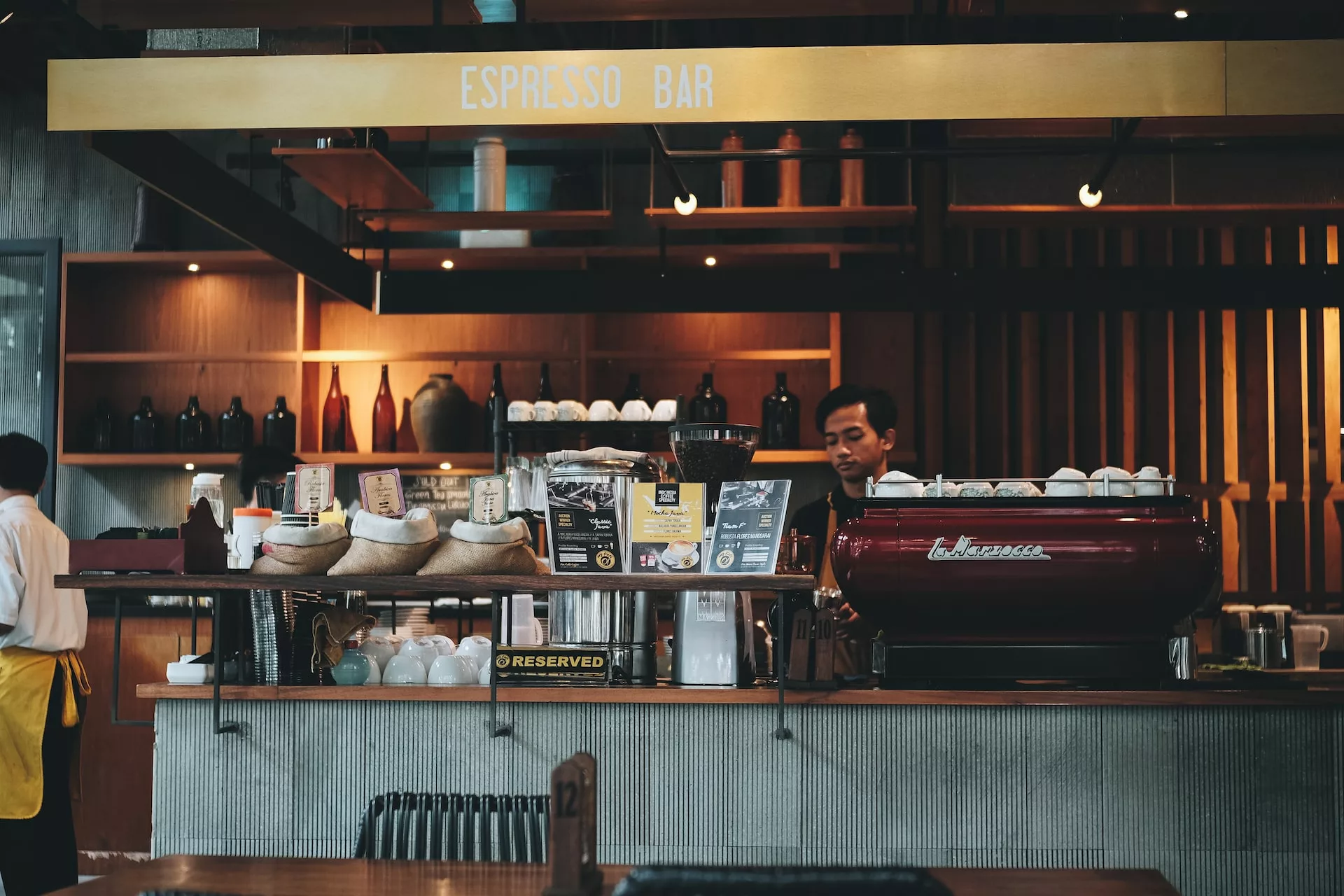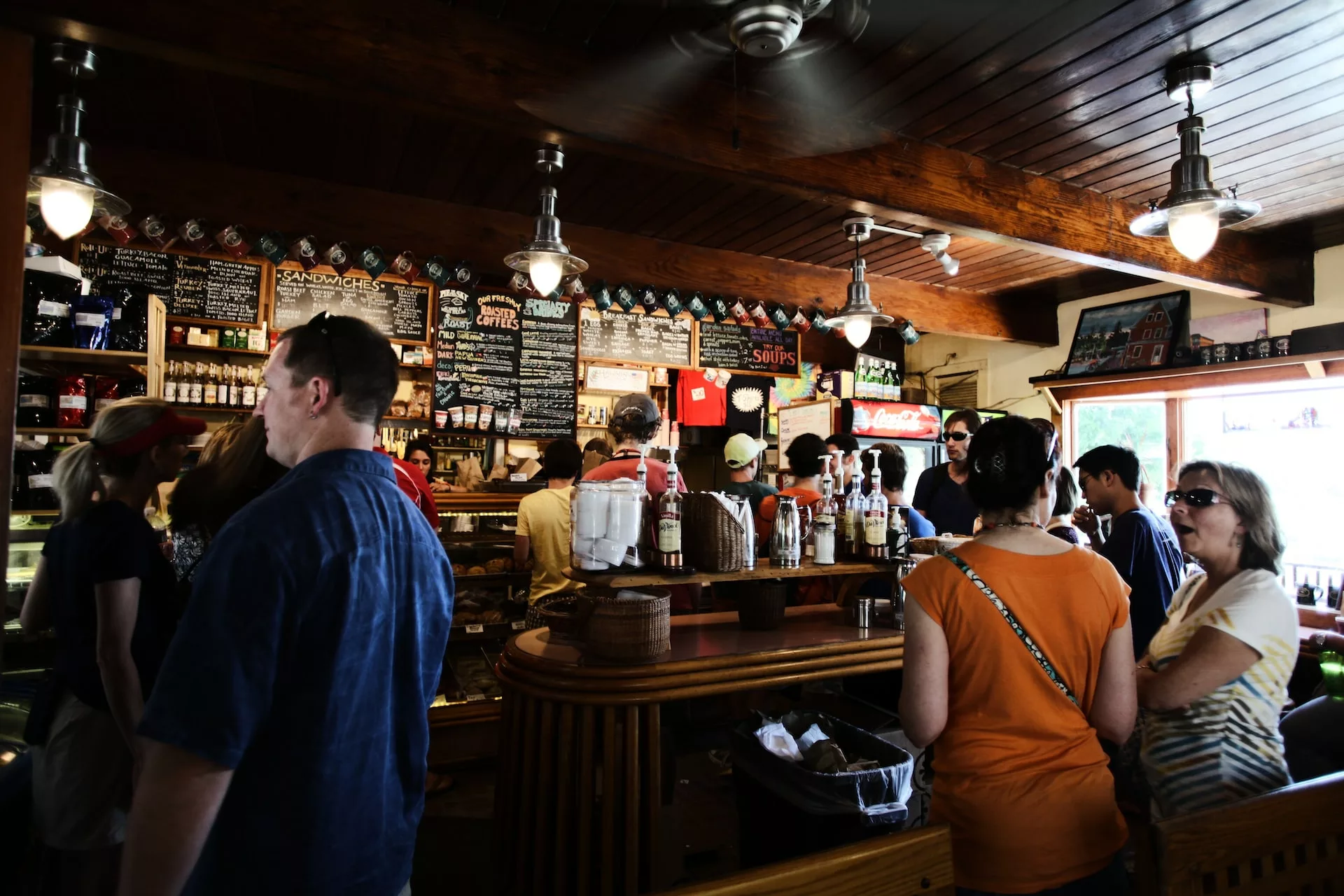If you’re starting a cafe or coffee shop, it’s essential to understand the compliance and legal requirements that come with hiring and managing staff in the workplace. This article outlines 7 of the most important employment laws that must be followed when creating a successful business. From health & safety regulations to minimum wage laws, learn how to stay up-to-date on all your employment laws when starting your own business.
Remember to consult your own attorney regarding these laws and how they apply for your coffee shop. This is not legal advice, just a description of several laws you should be aware of before starting your coffee shop.
Minimum Wage Laws
Minimum wage laws are an important factor to consider when considering how to run a successful cafe or coffee shop. The minimum wage is the lowest amount that employers must legally pay their employees for work performed. This rate can vary from state to state, and it’s important for entrepreneurs to stay up-to-date on their local minimum wage laws in order to avoid any potential legal issues.
When it comes to running a coffee shop, employers must comply with the minimum wage laws of their respective states or risk facing stiff penalties. The most common federal minimum wage is $7.25 per hour, but depending on your location, it could be higher. Each state has its own unique regulations as well, so entrepreneurs must research policies thoroughly and consult with legal professionals if needed. Failure to comply with the law can result in hefty fines, so it’s important to know what you’re working with from the start.
In addition to understanding your local government’s minimum wage requirements, employers must also take into account any additional costs associated with hiring an employee such as payroll taxes and health care benefits. These costs can add up quickly and significantly increase operating expenses for business owners who don’t plan accordingly. It’s crucial for entrepreneurs to research all of these costs beforehand or face unexpected financial burdens down the line.
Employers should also remember that although they may technically have the right to pay an employee less than the legal minimum wage due to job type or experience level; this practice often results in high levels of turnover among employees and a lack of motivation towards performing their best work. As such, employers that focus on creating positive workplace environments often set wages at or above the ender range allowed by law in order to attract and retain top talent that could help make their businesses successful.
Ultimately, understanding and staying compliant with minimum wage laws is essential when starting a coffee shop. Researching local policies ahead of time can help ensure that businesses don’t face any unexpected costs or fines later on down the road while also creating beneficial working conditions for employees who otherwise would not be protected by law under different circumstances.
Hiring Practices & Equal Employment Opportunity Regulations
Hiring practices and equal employment opportunity regulations are important elements for entrepreneurs to consider when starting a cafe or coffee shop. As a business owner, it is your responsibility to ensure that you hire and treat all of your employees in accordance with the law. Failure to follow any regulations can result in hefty fines and other consequences, so it’s best to be mindful of your responsibilities from the get-go.
The Equal Employment Opportunity Commission (EEOC) is responsible for enforcing laws that prohibit discrimination against individuals on the basis of race, sex, color, religion, national origin, age, disability status, genetic information, marital status and veteran’s status. Therefore, when looking at candidates for positions within your business it is important to remain mindful of each individual’s experiences and background so as to not make assumptions or prevent someone from properly competing for an open position due to these factors. Additionally, employers should also refrain from conducting unnecessary background checks on potential employees when making hiring decisions as this too could be considered discriminatory practice.
It’s also essential that your coffee shop hiring process includes fair and objective criteria for evaluating applicants as well as properly verifying their qualifications for the job. This means that employers should not engage in nepotism or give preferential treatment towards a certain candidate simply because they may know them better than another applicant; rather they should strive to provide every person in contention with equal opportunities based on their qualifications and capabilities.
In addition to following EEOC regulations while hiring new staff members it is also important that employers strive to create a welcoming work environment where everyone feels valued regardless of their backgrounds or identities. This includes providing reasonable accommodations if necessary so that all employees have access to the same opportunities such as flexible hours or time off due health issues etcetera.
Understanding and adhering to hiring practices & equal employment opportunity regulations are critically important elements entrepreneurs should consider when starting a coffee shop or cafe. By following these guidelines you can ensure that you’ll maintain legal compliance while creating an inviting workplace where everyone feels respected no matter who they are or what their story might be.

Working Hours and Overtime Pay
Working hours and overtime pay laws are essential factors for entrepreneurs to consider when running a successful cafe or coffee shop. For employers, it’s important to understand these regulations in order to remain compliant with the law and properly compensate their employees for any extra hours they may work.
The Fair Labor Standards Act (FLSA) is responsible for setting guidelines regarding hours of work and overtime pay in the United States. Essentially, employers must limit the number of hours that their employees work each week so as to not exceed forty hours per week on average over a given ten-week period. Additionally, this law dictates that any additional hours worked resulting from an employee working more than forty hours in one week should be paid at one and a half times their hourly rate as compensation. This applies even if the employee works less than forty hours in the following weeks; meaning that any overtime pay owed can accumulate over time and must be issued upon termination of employment.
In addition to understanding FLSA regulations surrounding working hours, it’s also important for employers to consider other factors such as rest breaks, meal times and scheduling practices when setting up their schedules for staff members. Most states have laws which outline how employers should offer rest periods throughout shifts so as to prevent fatigue among employees or regular interruptions in workflow due to lack of energy; while others may require that employers provide mealtime periods whereby workers are given an unpaid break every four consecutive working hours.
Finally, when crafting schedules it’s also important that employers take into consideration any labor laws pertaining specifically to minors as they could vary significantly from those affecting adults. In most states minors under eighteen years of age are limited in how much they can legally work within certain time frames while attending school; thus business owners must research local regulations in order to avoid facing potential legal penalties down the line due to overlooking applicable laws.
Understanding and adhering to working hour and overtime pay laws is essential when starting a coffee shop or cafe. Being mindful of these regulations will help you create fair scheduling practices for your staff while ensuring compliance with local labor laws that could otherwise lead to costly consequences later on down the road if ignored.
Workers’ Compensation Laws
Workers’ compensation laws are an essential set of regulations for entrepreneurs to understand and follow when running a cafe or coffee shop. In the event of an employee sustaining injury or illness related to work, employers must comply with these rules in order to provide the necessary medical care, wage replacement and other benefits which may be required as part of workers’ compensation insurance.
The basic idea behind workers’ compensation is that it provides a safety net for employees who may suffer from an injury or illness acquired while on the job; regardless of fault or negligence. This means that even if an employee was reckless, defective machinery played a role in their accident or if they failed to exercise due caution while performing their duties they may still be covered under workers’ compensation depending on their particular state’s laws.
Workers’ compensation also covers indemnity payments, disability benefits and death benefits should any of these circumstances arise due to any occupational hazards present in the workplace. These benefits will typically be paid for by employers through private insurance providers but could also come directly from public sources as provided by states such as California, New York and Pennsylvania (among others). Furthermore, in addition to providing financial assistance for injured employees it’s also important that employers assist them with finding suitable rehabilitation programs so as to help them return safely back into the workforce following recovery from any injuries sustained.
Finally, employers should recognize that some individuals may already possess impairments prior to beginning employment at their business yet still require reasonable accommodations depending on the specific task such person is hired to do e.g., providing a ramp so someone dependent on a wheelchair can easily access certain parts of the building etcetera. By understanding and adhering too workers’ compensation regulations entrepreneurs running cafes or coffee shops can ensure that they’re protecting their employees while maintaining legal compliance and mitigating potential liabilities down the line.
Discrimination & Harassment Laws
Discrimination and harassment laws are an essential set of regulations for entrepreneurs running a café or coffee shop. In order to maintain a safe and positive workplace atmosphere, employers must comply with these laws in order to ensure that their employees are not subject to discrimination or harassment due to their race, gender, age, national origin, disability or any other protected characteristic under federal law.
The Equal Employment Opportunity Commission (EEOC) is the agency responsible for regulating discrimination and harassment in the workplace. This includes laws such as Title VII of the Civil Rights Act which prohibits employers from discriminating against employees based on any of the aforementioned factors whether intentional or unintentional.
Additionally, it’s important for employers to be aware of any state-specific laws pertaining to discrimination and harassment which could require them to monitor employee behavior more closely than what is required by federal law; particularly when it comes to monitoring behavior in public spaces such as cafes and coffee shops where there may be non-employees present as well.
When running a cafe or coffee shop it’s also important that employers craft comprehensive policies regarding conduct amongst their staff so as to clearly delineate acceptable behavior while on duty. These policies should specify examples of unacceptable behavior while at work such as sexual jokes, derogatory remarks involving gender identity, racial slurs etcetera; all while making sure they do not violate anti-discrimination statutes within their particular state.
Furthermore, employers should make sure these expectations are communicated effectively throughout the workplace so that everyone understands how they’re expected to behave while interacting with customers, each other and potentially engaging with media outlets if necessary e.g., social media posts related to the business etcetera.
With regards to handling complaints about potential violations related to discrimination or harassment employers must take all claims seriously regardless if the incident occurred within or outside of the working environment; thus providing those affected with swift legal support whenever necessary is critical if one wishes to maintain compliance with current labor regulations and protect their business from any potential litigation down the line.
Understanding and respecting discrimination & harassment laws is essential for entrepreneurs running cafes or coffee shops; ensuring that all parties involved remain compliant with all applicable labor regulations will help create a positive work environment while mitigating future liabilities due to negligence by both employers and employees alike.

Family Leave & Medical Leave Laws
Family leave and medical leave laws are an essential set of regulations for entrepreneurs running a café or coffee shop. These laws serve to protect employees who require time off in order to care for family members (including themselves) while also providing them with job protection should they decide to take a significant amount of time away from the workplace.
At the federal level, the Family Medical Leave Act (FMLA) is one of the main regulations employers must comply with when it comes to family and medical leave. This act provides eligible employees with up to 12 weeks of unpaid, job-protected time off per calendar year in order to care for a newborn child, any other specified family member or themselves due to serious health conditions.
It’s important that employers have a comprehensive understanding of FMLA so as to properly identify which events would qualify under its provisions; failure to do so could lead to legal action against the business if it was found that any specific employee was denied certain benefits that were rightfully owed to them.
On top of this some states may offer their own family and medical leave provisions which provide further job protections on top of what’s already provided by federal law. For example, California allows employees who have worked at least 30 days within the past 12 months up to 12 weeks of partially paid leave for various reasons such as bonding time with a new baby, treating a serious illness or caring for an ill family member amongst others. Furthermore, many cities across the United States also have their own local statutes in regards to this matter e.g., San Francisco provides 6 additional weeks of fully paid parental leave among other things. Often, employees can break up this time off into business days, so they could take it over a longer period of time if they miss parts of a week.
It’s important not only ensure compliance with all applicable labor regulations but also provide reasonable accommodations when necessary e.g., flexible scheduling when needed due to personal circumstances etcetera; as doing so will help employers maintain positive relationships with their staff while mitigating potential liabilities down the line.
By following these laws entrepreneurs running cafes or coffee shops can help foster an accommodating environment whilst still meeting their legal obligations and staying compliant in an ever-evolving field such as labor management and regulation.
Safety Requirements for Food Establishments
Safety requirements for food establishments are an essential set of regulations for entrepreneurs running a café or coffee shop. These laws ensure that any food product served to customers meets state and federal standards for safety, wholesomeness, nutrition, quality control and labeling.
In the United States, the Food and Drug Administration (FDA) is responsible for regulating food safety throughout the country. This includes enforcing various standards such as sanitation procedures in order to protect consumers from contaminated food products; which is especially important when it comes to foods like coffee which are usually combined with other ingredients when being served in cafes and coffee shops.
Additionally, all permanent food facility operations must first register with the FDA prior to operating in order to certify that they meet certain sanitary requirements along with specifically stating what type of foods they’ll be serving.
Most states have their own supplemental regulations on top of what’s required by the federal government; this could involve anything from requiring additional documentation certifying safety standards were met to imposing stricter guidelines about how employees should be handling equipment within the workplace etcetera.
It’s important that these particular regulations are fully understood by employers as failure to do so could result in citations or even have one’s license revoked temporarily until they take appropriate action to fix any potential lapses in compliance with local ordinances related to food service
Apart from monitoring employee behavior within the workplace it’s also essential that employers create comprehensive policies outlining proper management practices when dealing with customer complaints or inquiries regarding a particular menu item. This allows one to demonstrate their commitment towards providing quality service while responding accordingly should something go wrong during an order fulfillment process i.e., incorrect orders being delivered or items not cooked at a proper temperature etcetera.
By following both state and federal safety requirements, entrepreneurs running cafes or coffee shops can help ensure that customers receive a quality product every time while keeping them safe from potential hazards due to improper handling or storage techniques amongst other things; furthermore, compliance with all applicable labor regulations will help mitigate future liabilities due to negligence on behalf of either employers or employees alike.
Staying informed and up-to-date on all the employment laws you need to know when starting a cafe or coffee shop is an important part of creating a successful business. By properly understanding and following these laws, you can minimize your legal risk and ensure that both you and your employees are fully protected. Make sure you consult with an attorney about each of these laws. With the right knowledge at hand, you’ll be ready to take on all the challenges that come with being an entrepreneur.
More Coffee Shop Articles
Should I find a partner for my new Coffee Shop?
Launching a coffee shop can be an overwhelming task, especially if you have limited resources. Finding the right partner can be an invaluable asset to your business and help you reach your goals faster. In this post, we’ll discuss when it’s a good idea to find a partner for your coffee shop business.
Hit the Ground Running: How to Accelerate Your Coffee Shop Startup
Starting a new business is an exciting but daunting undertaking. If you want your coffee shop to take off and reach its full potential, it’s important to hit the ground running. In this post, we’ll explore how to accelerate your coffee shop startup by addressing key areas like planning, marketing, and operations.
What Professional Services Do I Need to Start My Coffee Shop?
Starting a coffee shop is a big undertaking, and it’s important to make sure you have the right professional services in place. In this post, we’ll explore what services you need to help make your dream of owning a coffee shop a reality.
5 Secrets to Local Marketing for My Coffee Shop
Local marketing is the key to success for any small business – especially a coffee shop. In this post, we uncover five tips and tricks that can help drive more customers through your door and boost your revenue.
Reducing Risk: Insurance Options for My Coffee Shop
Choosing the right insurance coverage for your coffee shop is an important part of reducing risk and protecting your business. Taking time to review available options and weigh the costs against potential risks can help ensure that you have the best coverage possible.
How Do I Get a Business License for My Coffee Shop?
Are you planning to open your own coffee shop? Make sure you know how to get a business license first! This post will explain step-by-step how to get the right license for your bustling cafe.
How Do I Find the Right Location for My Coffee Shop?
Opening a coffee shop is a big decision, and it all starts with finding the perfect location. In this post, we’ll take a look at what goes into choosing the ideal spot for your coffee shop business.
5 Mistakes Coffee Shop Entrepreneurs Make
Starting a coffee shop can be a daunting but rewarding task. But without the proper preparation, entrepreneurs can easily make mistakes that could prevent them from achieving success. This post covers five common pitfalls coffee shop owners should look out for to ensure they do not fall victim to them.
How to Find Funding to Start a Coffee Shop
Are you ready to become your own coffee shop owner? There are many ways to finance a new business, and this post will discuss how to find funding for your coffee shop dreams.










